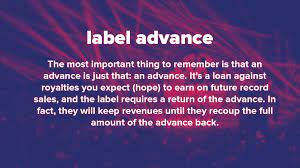How Record Deals Work: Are They Right For You?
Most young & hungry artist wants a record deal. Many seem to think it’s the holy grail – the be-all and end-all. But first you need to know how record deals work.
If this is you, ask yourself: Do you know how record deals work? Calling a recording contract a ‘record deal’ is quite vague. Why? Because there are many different types of record deals.
How Do Record Deals Work?
A recording contract is a legally binding agreement between an artist and a label. The label agrees to pay for the making, distribution, and marketing of any recordings. Record labels also agree to pay the artist an agreed and fixed amount of money from the total sales of the recordings too. This is called the royalty rate.
Royalties are generated via the sale of the recording. Whether money is made by digital downloads, online streams, CDs, or vinyl sales, as well as licenses sold to TV or film production companies or films for soundtracks.
A Label Advance
A label will offer the artist what’s called an advance. An advance is a sum of money given to the artist on signing a deal (before the recording process starts) and it’s to ensure the artist can survive without working and covers the cost of recording the album. This frees up the artist to record the album/single. The label gets the advance back through the sale of the recordings too. The advance only has to be paid back to the label if the recordings generate enough revenue. If the recording doesn’t make enough money… well, you get free money!

What Do Record Contracts Cover?
As we said, there are different types of record deals. Factors covered and included in a recording agreement can vary, but typical issues include:
- What countries and regions will the album be sold in? Is your record deal only sold to one country or a number of countries? Will th erecording be sold in a region or an entire continent? Or will it be sold globally?
- The length of term. How many albums are going to be recorded in a set amount of time, and will there be any more recorded if the first album take soff? As an example, the label you just signed with wants one guaranteed album (an album that will definitely be recorded and the label has first choice to publish themselves) and an option for another two albums if the first sells well. However, the deal may be set for a specific amount of time, such as three years.
- Recording Budget: the total amount of money available to pay producers, studios, etc.
- Determine who pays for what: Differnet deals dictate who is going to pay for what or what expenses will be split. This gives you the option to hire your own assistant, a publicity agent, etc. It also covers who pays for the promotion of the recording too.
Before you sign any record deals make sure you have a lawyer who can advise you through each and every stage of discussing a record deal. This saves you stress down the line when you may feel that the record deal benefits the label more than you! A good lawyer will help you understand exactly what you’re signing.
You won’t get a record contract offer if your music isn’t of good quality. To make good quality music you need to start with good quality samples.
The sampling revolution has risen in popularity and shaped music since the early 1970s. Sample culture continues to transform how millions of artists and producers do their thing in DAWs.
You too can break conventional norms, challenge the status quo, and open Pandora’s box of sound design.
Mixxed works with a growing number of sample labels and contributors to provide you with an affordable sample subscription service that’s more accessible than any before.
You’ll have access to our growing catalogue of loops, one-shots and sound effects that you can browse, download and keep forever for less than $3 a month.
Sign up today to find your sound!
